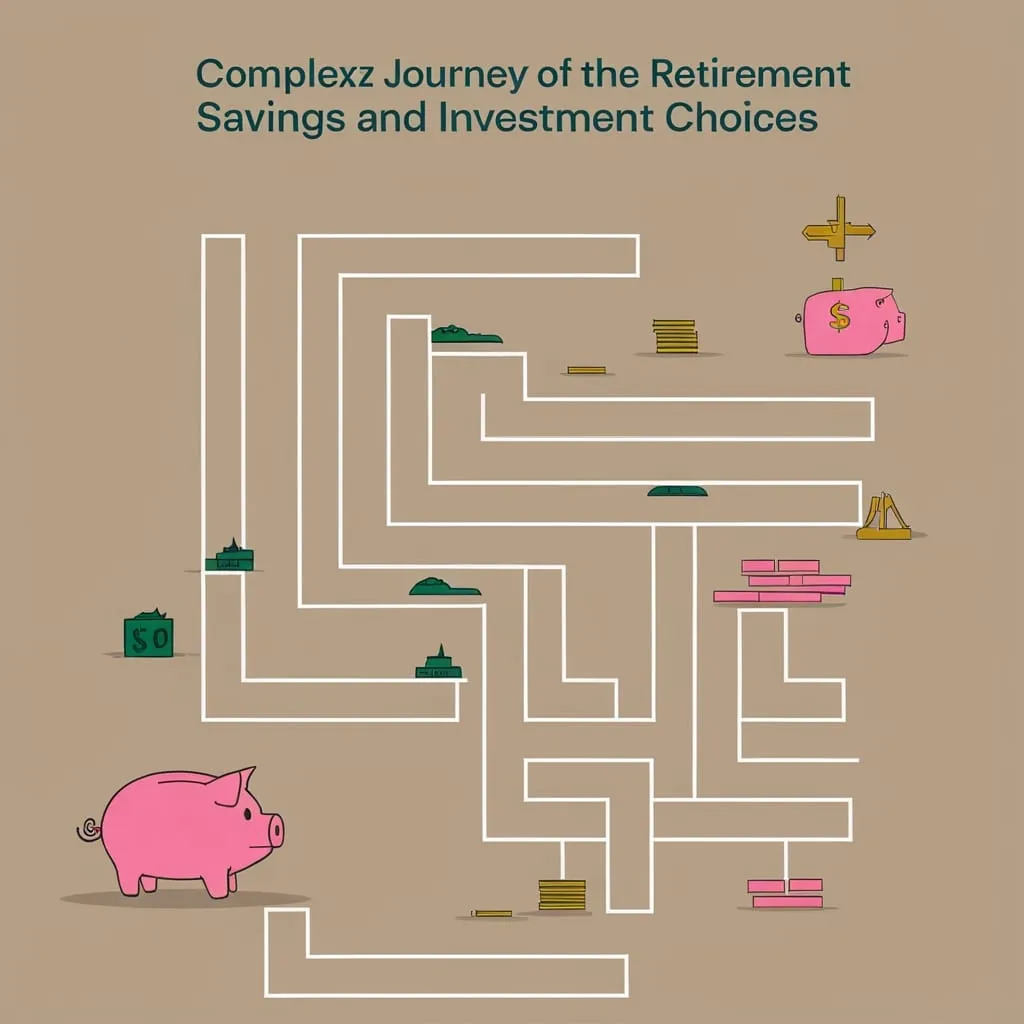Money Talks: What Your Financial Advisor Isn't Telling You
Let's get real for a second. You know that feeling when you're sitting across from your financial advisor, nodding along as they throw around fancy terms and promising numbers? Yeah, we've all been there. But here's the kicker - there's probably a whole lot they're not telling you. Buckle up, because we're about to spill the tea on what your advisor might be keeping under wraps.
Trust me, I'm a professional
First things first - trust is everything in this game. It's like the secret sauce that makes the whole advisor-client relationship work. But here's the thing - building that trust isn't just about fancy suits and firm handshakes. It's about being real, owning up when you don't know something, and always, always putting your needs first.
Think about it. You're planning for your golden years, and your advisor suggests a bunch of investments. Sounds great, right? But what if they're not giving you the full picture on fees? Suddenly, you're losing money without even realizing it. Not cool, right?
The fee-asco
Speaking of fees, let's talk about the elephant in the room - hidden costs. These sneaky little charges can seriously mess with your returns. Imagine paying 2% more in fees than you need to. That's like giving away two decades of income for absolutely nothing. Ouch.
Let's break it down. Say you invest $10,000 in a mutual fund with a 1% annual fee. Over 20 years, that 1% can add up to thousands of dollars. That's money that could've been growing your nest egg, not lining someone else's pockets. And the worst part? Most of these actively managed funds don't even beat the market. Talk about adding insult to injury.
The dirty little secrets
Now, here's something that'll really make your head spin. About 20% of financial advisors have regulatory compliance disclosures against them. Yeah, you read that right. We're talking criminal charges, customer complaints, bankruptcies - the works.
So, how do you protect yourself? Easy. Head over to brokercheck.org and do some digging. Look for red flags like customer disputes, terminations, or regulatory actions. If your advisor's been hopping from firm to firm, that's another sign something might be off. Remember, it's your money on the line here.
The art of not telling
Ever heard of "lies of omission"? It's when someone doesn't exactly lie, but they don't tell you the whole truth either. Some advisors are masters at this. They might not tell you about certain fees or risks unless you specifically ask. And let's be real, who's going to wade through a 50-page prospectus to find that info?
Here's a classic one - being told an investment has no risk. Newsflash: there's no such thing as a risk-free investment. Even "safe" options like bonds or CDs come with risks like losing purchasing power to inflation. If your advisor's downplaying these risks, it might be time to find someone who'll give it to you straight.
Fear factor
Now, let's talk about fear tactics. Some advisors love to use these to push you into making quick decisions. "If you don't invest now, you'll miss out!" or "Your kids won't be able to go to college if you don't act fast!" Sound familiar?
Here's the deal - real financial planning takes time. It's about understanding your goals, your risks, and finding the right path for you. If your advisor's rushing you, that's a big red flag.
It takes two to tango
Alright, we've talked a lot about what your advisor might be hiding. But here's the flip side - you need to be honest with them too. Many people hide assets, family issues, health concerns, or debt from their advisors. Bad move. This can lead to some seriously poor financial decisions.
Think about it. If you've got undisclosed assets or health issues that could impact your retirement, your advisor needs to know. How else can they give you the best advice? For example, if you've got a family history of serious health issues, your advisor might recommend different insurance options or investment strategies.
The health factor
Speaking of health, let's dive into that a bit more. I know, talking about your health with your financial advisor might feel weird. But trust me, it's crucial. Your health can have a massive impact on your financial planning.
Think about it this way - retirement planning is all about making assumptions. How long will you live? How much will inflation affect your savings? What about taxes? If you've got health issues that could affect your life expectancy or rack up big medical bills, your advisor needs to know to make accurate assumptions.
For instance, if you've got a genetic predisposition to a certain disease, your advisor might suggest investing in long-term care insurance or setting aside more money for potential medical expenses. It's all about tailoring your financial plan to your specific needs and risks.
Protecting your legacy
Now, let's talk about legacy planning. This is where being honest with your advisor really pays off. Got issues with your kids or their spouses? Your advisor needs to know. Have legal documents that protect your assets? Yep, your advisor should be in the loop on those too.
Here's a scenario - you want to leave money to your kids, but you're worried they might blow it all on fancy cars and exotic vacations. Your advisor can help you set up a trust that distributes the money over time. This way, your kids can learn from their mistakes without losing everything. But for this kind of planning to work, you need to be upfront with your advisor about your concerns.
The bottom line
Choosing a financial advisor is a big deal. It's not just about finding someone who knows their stuff or has a fancy title. It's about finding someone you can trust with your financial future.
Remember, it's always better to be safe than sorry. Take the time to do your homework. Check your advisor's background, ask about fees and risks, and be honest about your own financial situation. Your financial future is too important to leave to chance or hidden facts.
At the end of the day, it's your money and your future we're talking about. Stay informed, stay vigilant, and don't be afraid to ask questions. With the right advisor and the right approach, you can navigate the complex world of finance and build a secure, prosperous future. Now that's something worth talking about.






